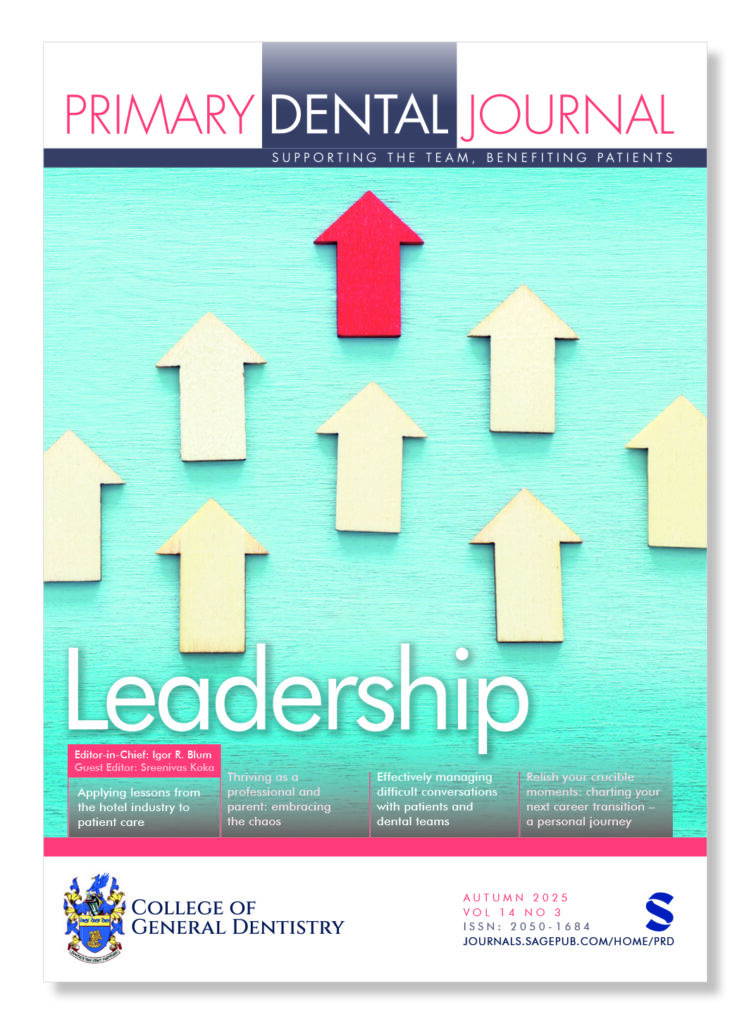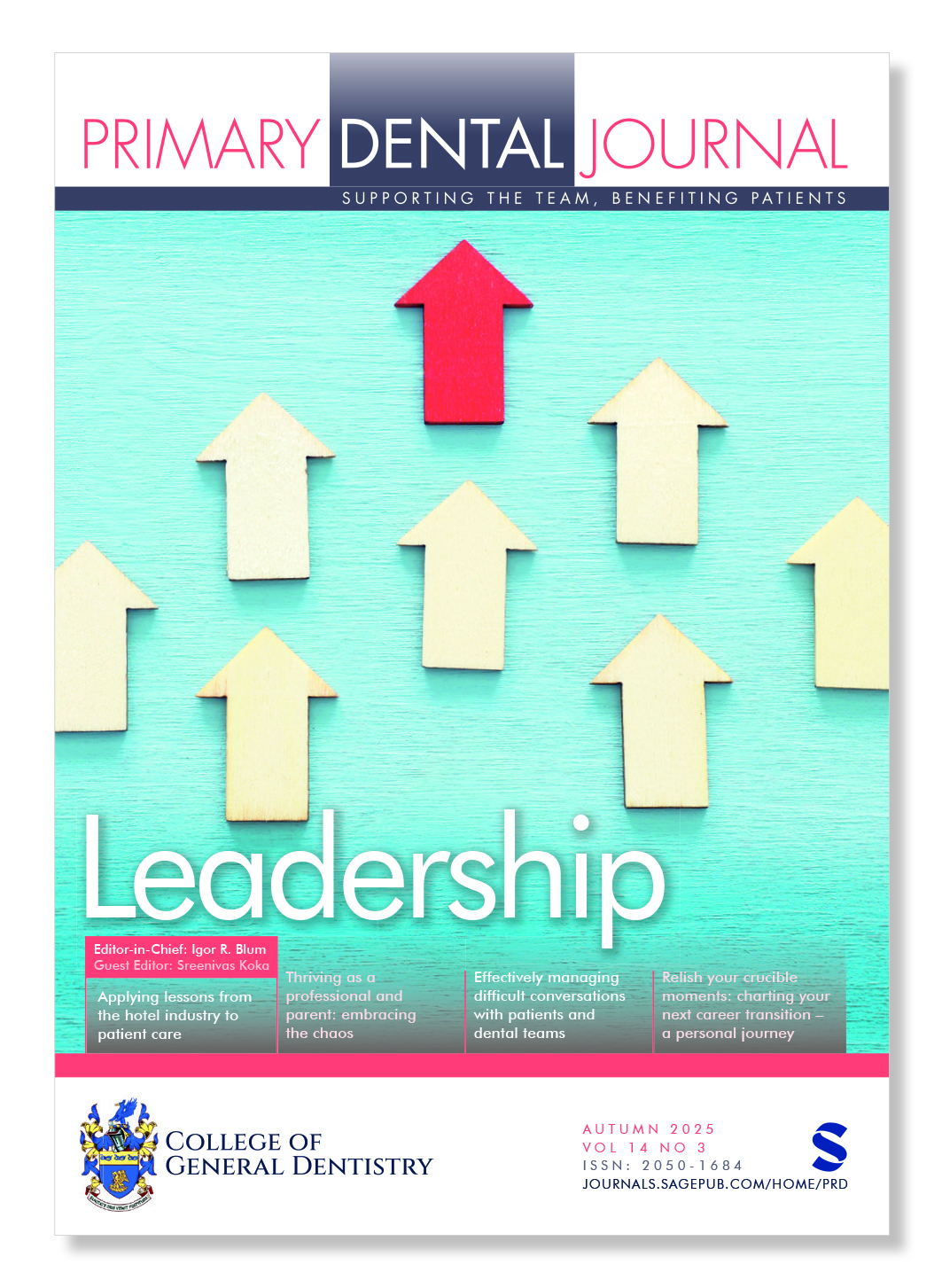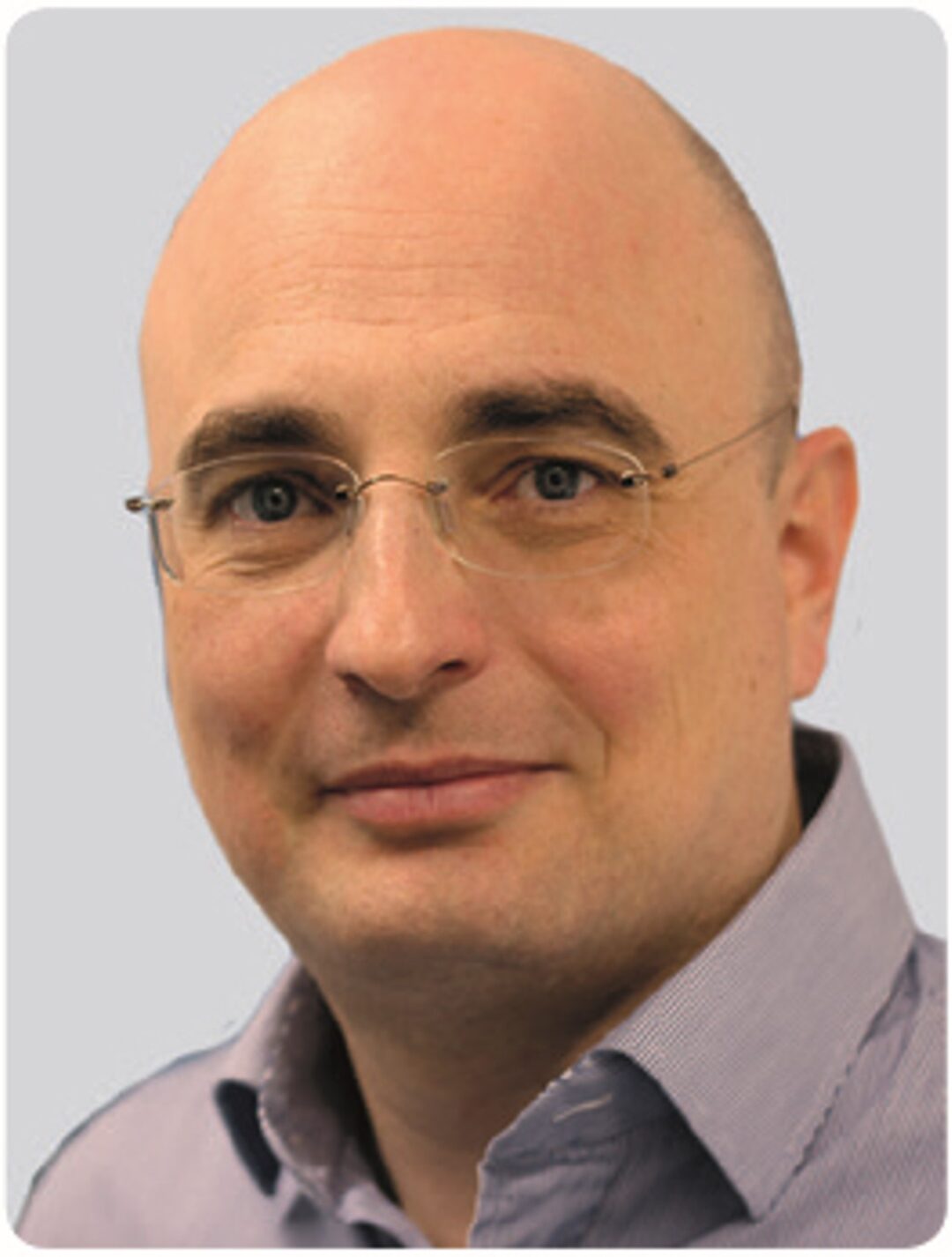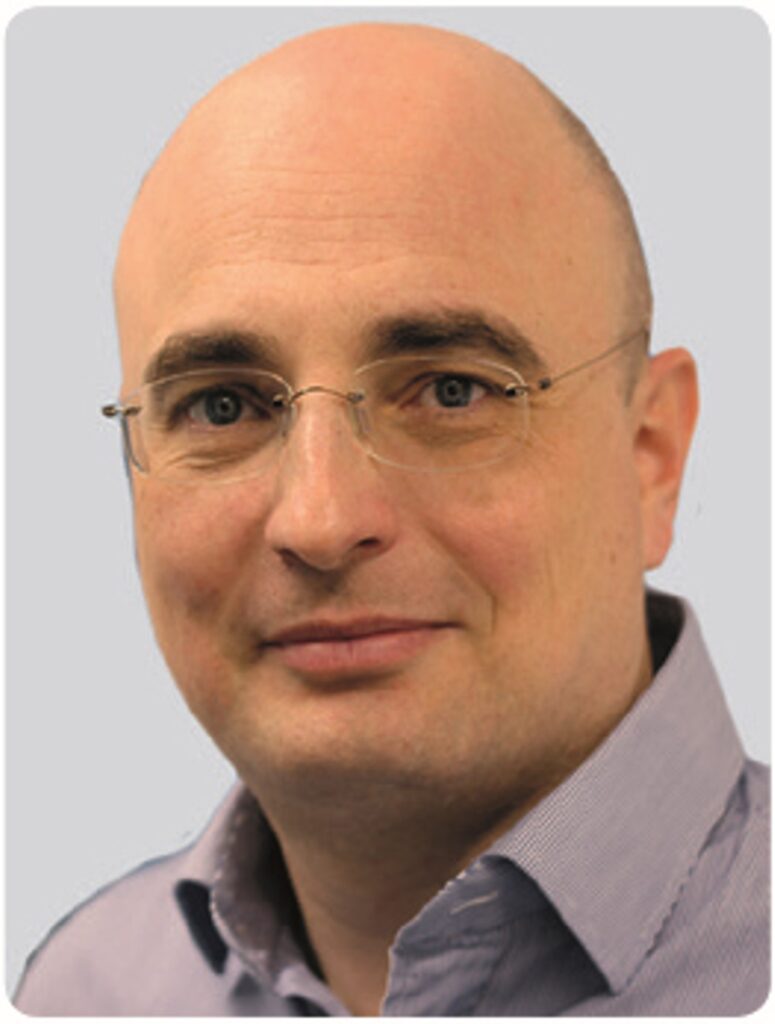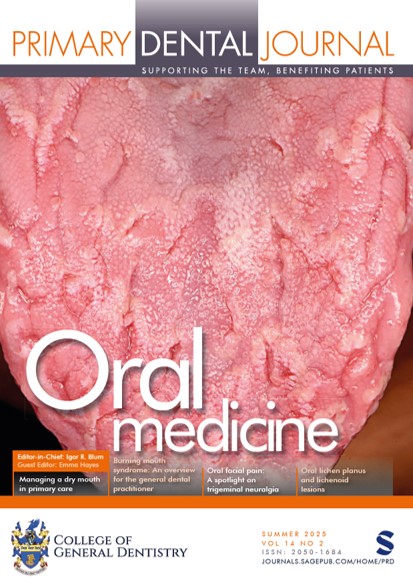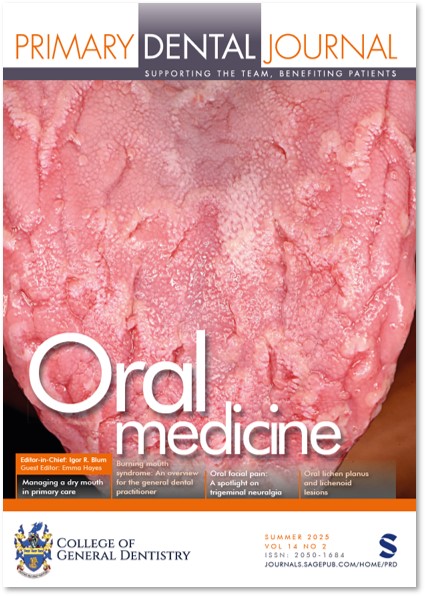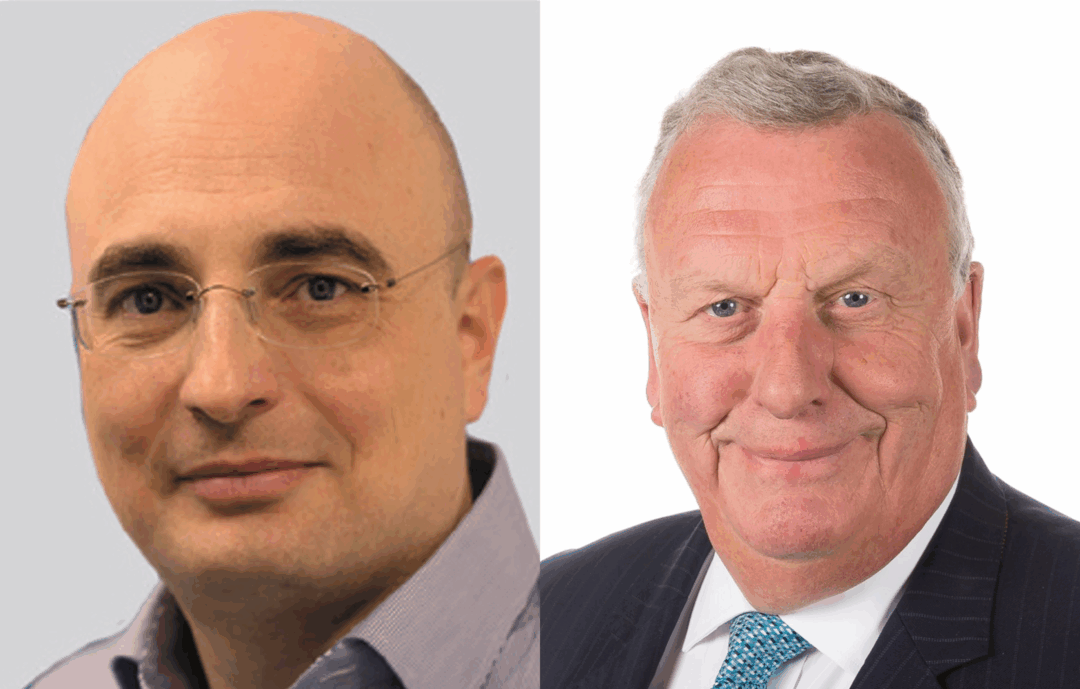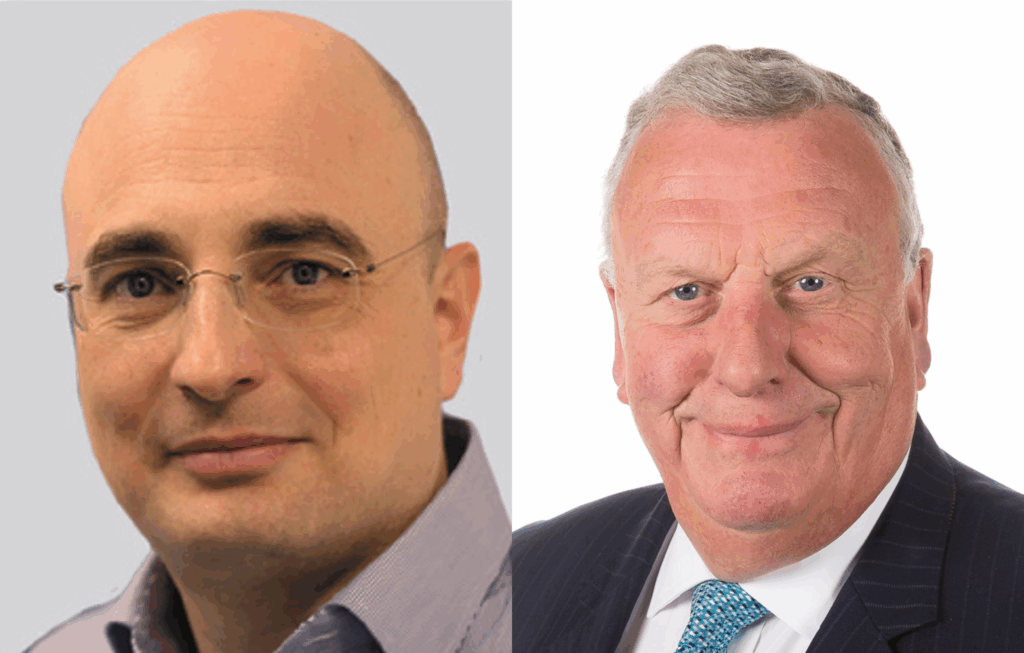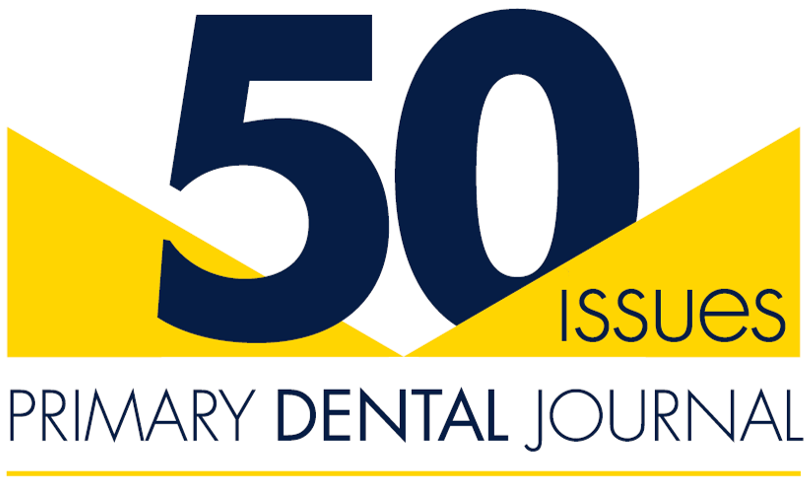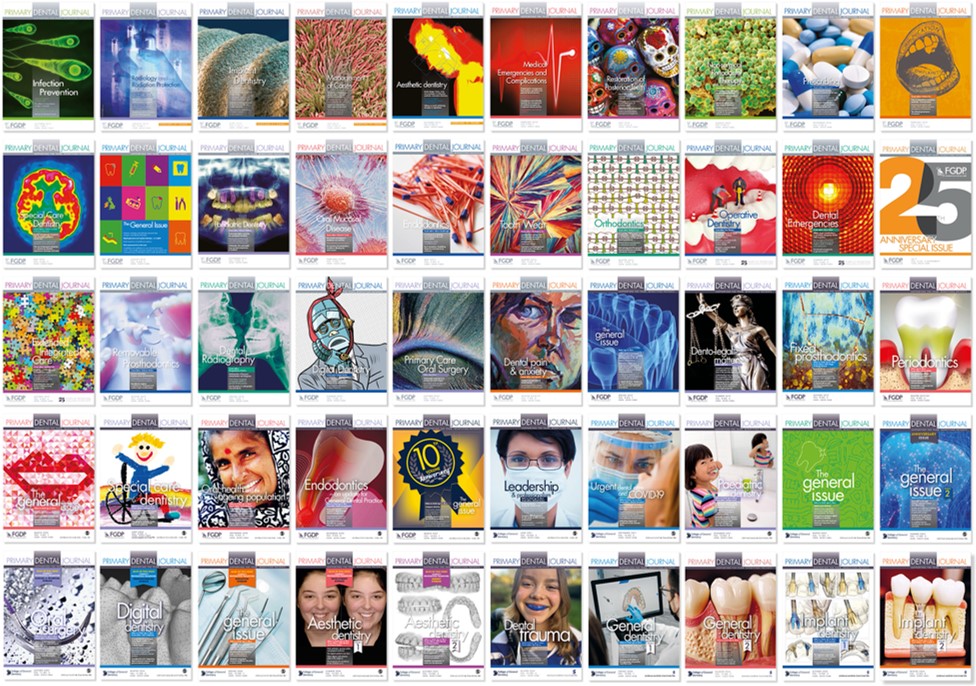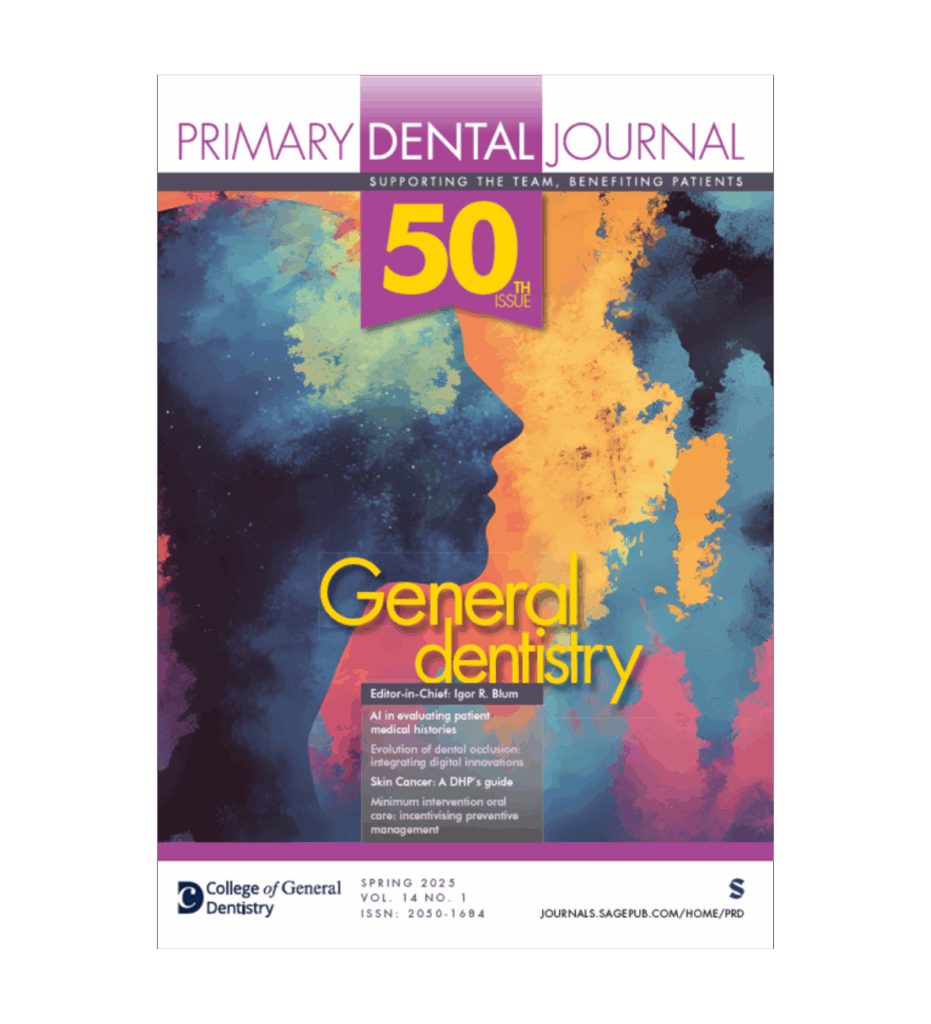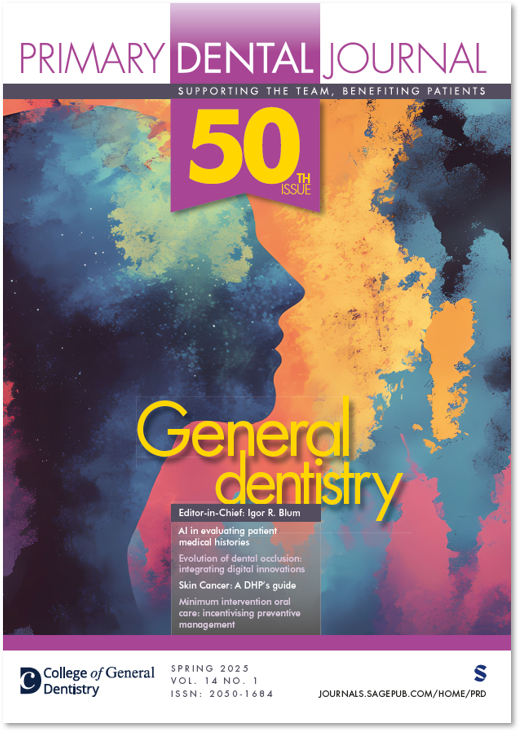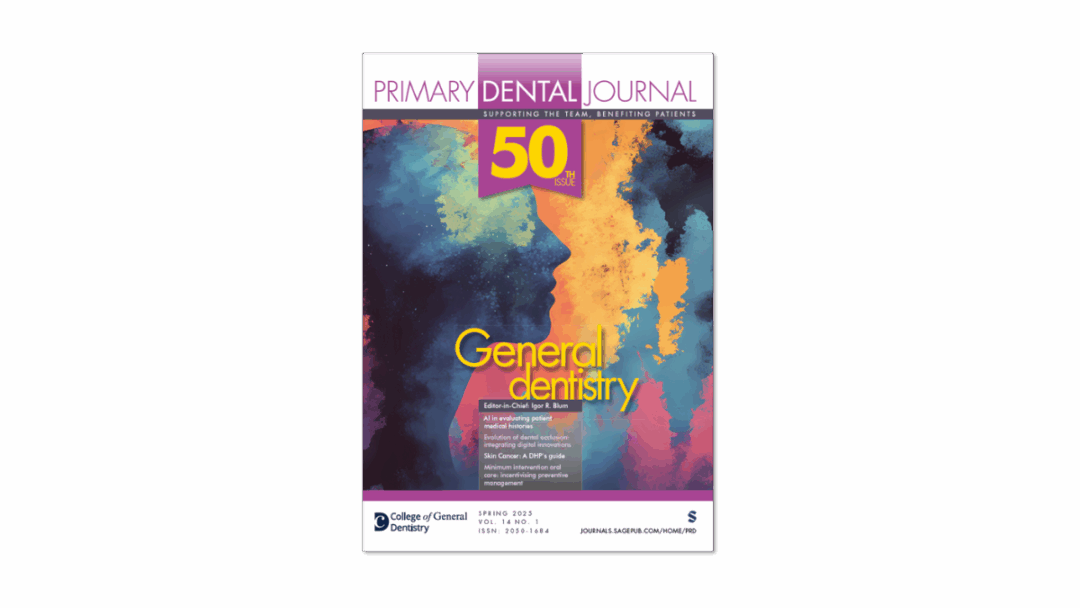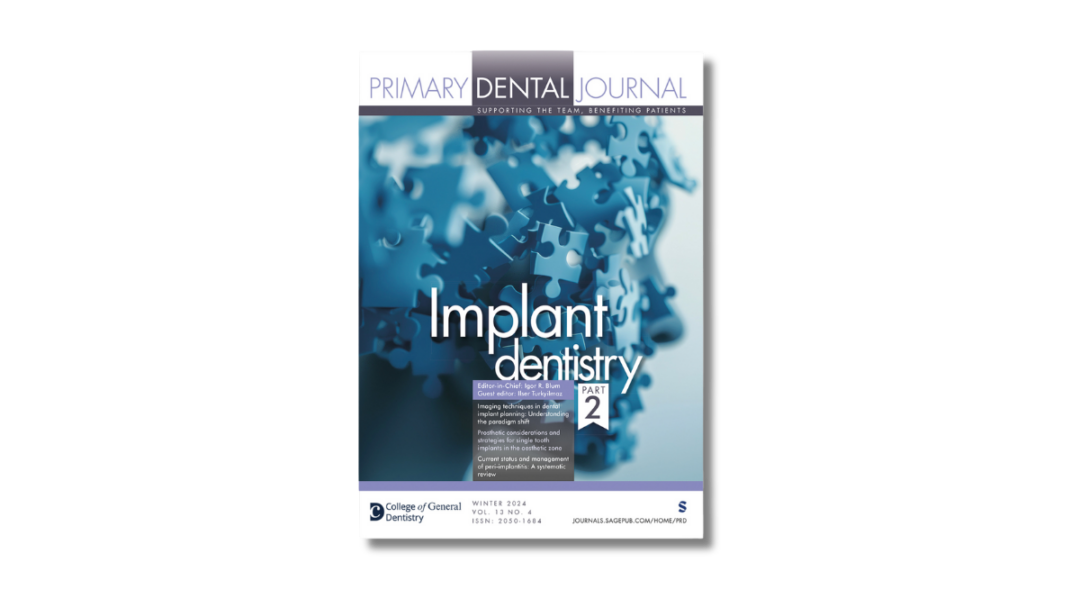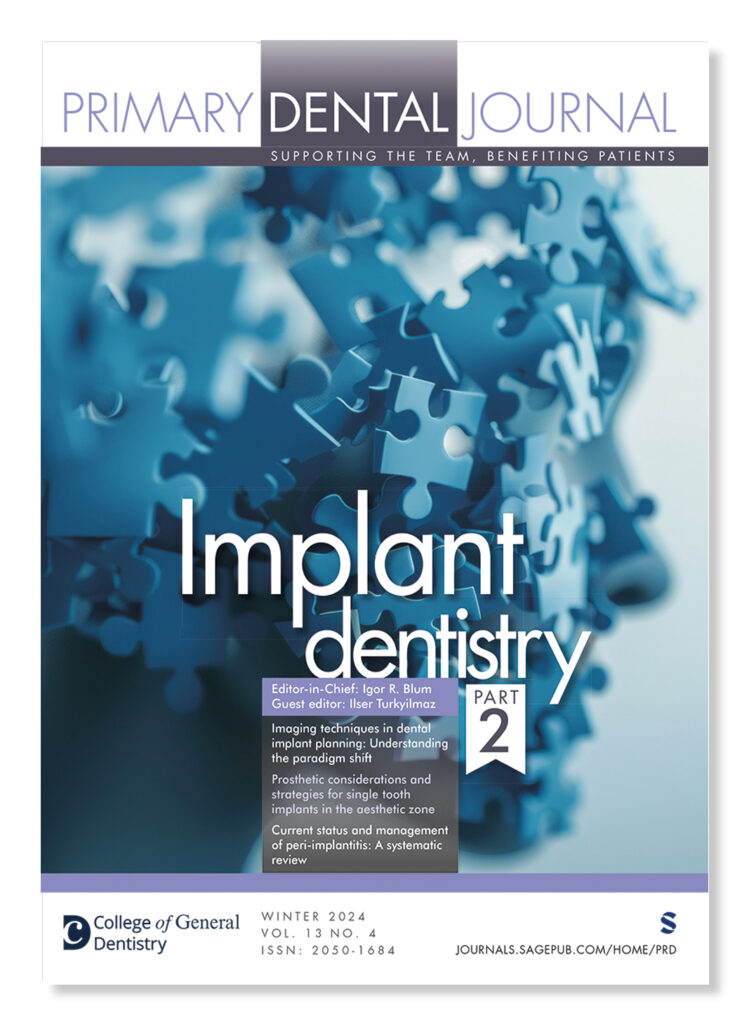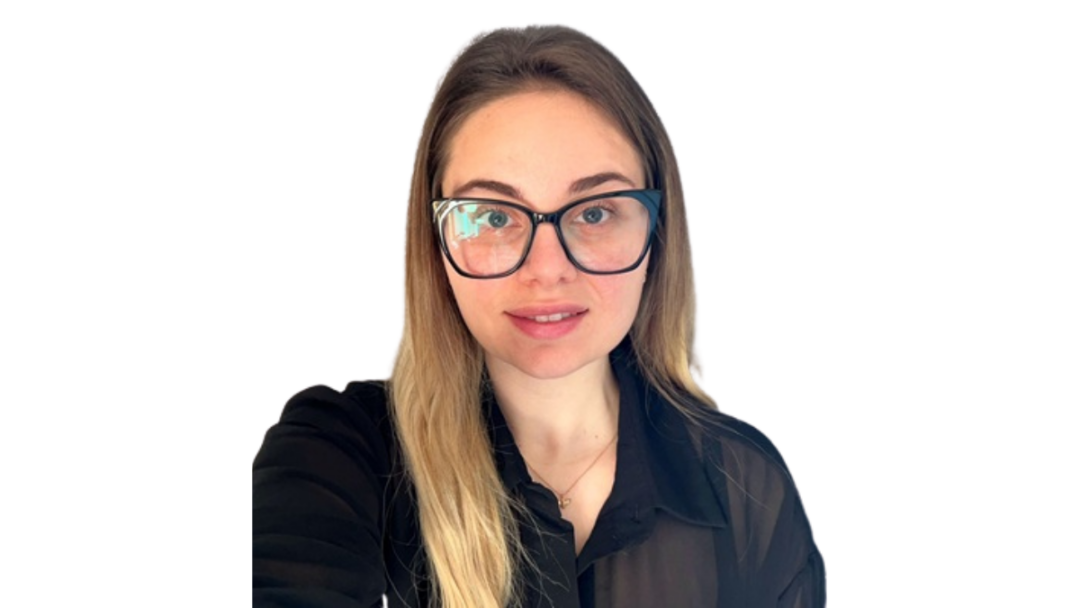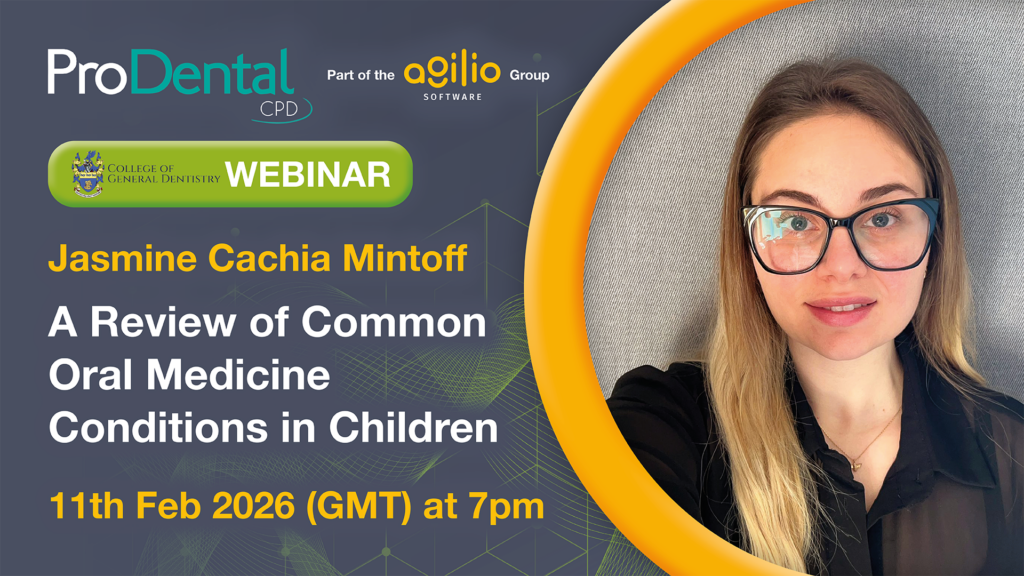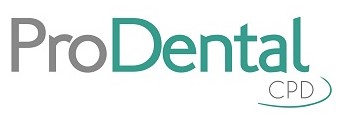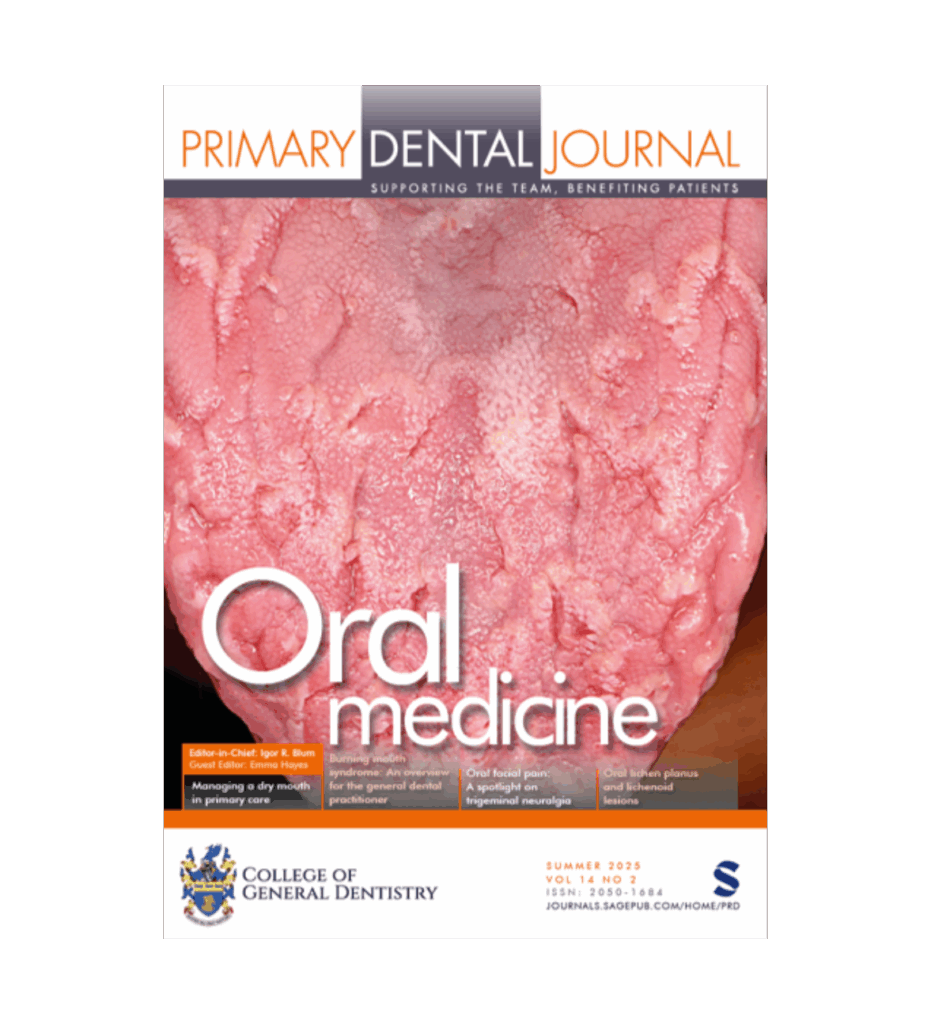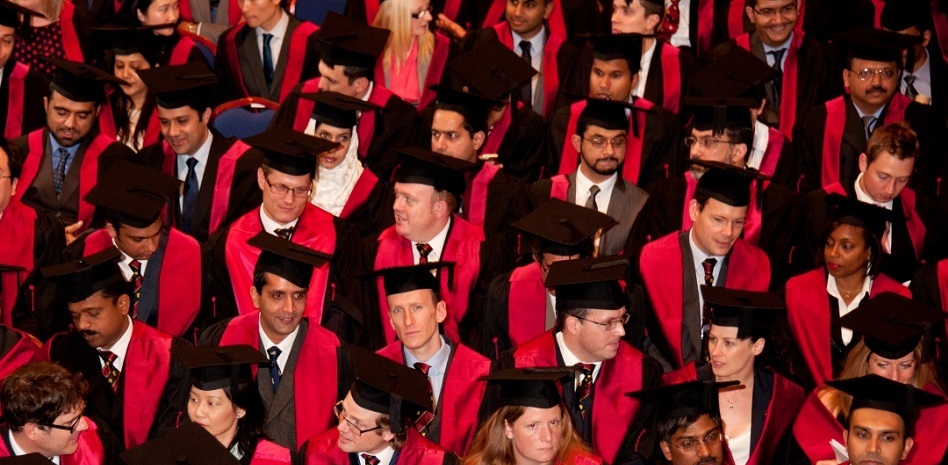Professor Igor Blum, Editor of the Primary Dental Journal (PDJ), reviews the meaning of leadership – the theme of the upcoming issue – within the context of dentistry and the general dental team.
Dentistry stands at a crossroads. Today’s dental professionals do more than deliver treatment – they manage teams, communicate under pressure, work across complex systems, manage regulatory challenges, navigate ethical dilemmas, adopt new technologies, and care for increasingly diverse and complex patient needs.
In this context, dentistry depends as much on leadership as it does on clinical competence. Dentistry cannot meet tomorrow’s challenges without educating the leaders of tomorrow, and the dental profession and dental educators have an essential role in shaping that future.
The Autumn 2025 issue of the Primary Dental Journal (PDJ) explores what “leadership” means in the context of healthcare and, in particular, dentistry from the perspective of a variety of team members, and why leadership is increasingly recognised as a critical domain for dental professionals.
Leadership in dentistry has long been viewed through the narrow lens of clinical seniority: the most experienced clinician, the most decorated consultant or specialist, or the individual who has simply “been around the longest.” Yet modern dentistry – multidisciplinary, digitally driven, team-based, and increasingly complex – demands a different understanding of what leadership truly means.
Nowadays, leadership in dentistry is less about hierarchy and more about fostering a positive, supportive culture, creating environments where people can thrive. It is the ability to navigate uncertainty, steward organisational or practice culture, support colleagues’ wellbeing, and translate vision, both clinical and non-clinical, into systems and behaviours that improve patient care. In an era marked by relentless workforce shortages, escalating regulatory scrutiny, and a more litigious landscape, let alone increasing patient expectations, and an expanding scope of practice, leadership is no longer optional – it is compulsory.
In many cases, dentists – and sometimes dental care professionals – enter leadership positions almost by chance, without prior preparation or intention, rather than through deliberate career planning. Many find themselves leading teams, services, or departments without formal leadership training, relying instead on clinical logic and common sense to solve organisational challenges. But clinical acumen and common sense do not automatically confer leadership competence.
As readers can glean from articles in this issue of the PDJ, effective leadership in dentistry requires:
- reflective practice to learn from error, change behaviour, and model humility
- clear communication to translate strategy into day-to-day action
- the ability to effectively manage difficult conversations
- emotional intelligence to respond to stress, conflict, and diverse personalities
- courage to address performance concerns, speak up for safety, and challenge inefficient systems
- vision to anticipate future needs – technological, educational, and demographic
These attributes are cultivated, not inherited. As a profession, we must recognise that leadership is a skillset that demands deliberate development.
Good leadership has measurable clinical consequences. Teams led by authentic, supportive leaders demonstrate better compliance with safety protocols, fewer adverse incidents, and higher patient satisfaction. Conversely, poor leadership is a well-recognised contributor to staff burnout, low morale, regulatory referrals, and declining quality of care.
In this sense, leadership is not separate from clinical practice – it is clinical practice. When a leader fosters psychological safety, team members are more likely to ask for help, discuss decisions, and escalate concerns before harm occurs. When leaders model professionalism, the culture follows. Leadership, therefore, is an evidence-based intervention that directly affects patient outcomes.
The document “The Safe Practitioner: A framework of behaviours and outcomes for dental professional education”,1 published by the General Dental Council (GDC) has replaced “Preparing for Practice”2 as the curriculum document for all programmes of undergraduate dental education in the UK from September 2025. The new framework states that all dental professionals should “where appropriate, lead, manage and take professional responsibility for the actions of colleagues and other members of the team involved in patient care.” Although the language of the framework throughout its various domains and sub domains may not always mention “leadership”, the expectations clearly do.
Therefore, dental schools and postgraduate programmes have an opportunity – and responsibility – to embed leadership development into curricula. Students and trainees should graduate not only as “competent” clinicians, but as professionals equipped to lead teams, contribute to service improvement, and navigate the emotional realities of modern healthcare.
Leadership training should include:
- human factors and systems thinking
- communication and conflict resolution
- reflective and resilient practice
- understanding diversity, equity, and inclusion
- ethical decision-making and professionalism
- real-world exposure to service leadership, not purely theory
We cannot expect clinicians to lead effectively if we never teach them how. If we want graduates who are truly prepared for practice, we must prepare them for leadership.
The College of General Dentistry defines leadership as a learnable “science and art” and integrates it as a key domain within both its Professional Framework for Dentistry and its experience-based route to Fellowship.3,4 Rather than prescribing specific qualities for every single stage, the framework outlines a general progression across career levels, with leadership skills becoming increasingly sophisticated and team oriented as a practitioner advances. The College emphasises that leadership skills are vital for all members of the dental team, regardless of their formal role, as every dental professional is inherently a leader within their practice.
The pressures of contemporary practice – clinical, financial, organisational, and regulatory – will only intensify. Strong leadership is the compass that keeps teams aligned, grounded, and focused on what matters most: the delivery of safe, compassionate, and high-quality care. It is recognised that, ultimately, there is no “one size fits all” approach to leadership in dentistry, but recognition of its importance, and perseverance with establishing a leadership model that works, can transform our clinical environment.5
Our profession must embrace leadership as a collective responsibility, not a title reserved for the few. Every dental professional – whether in training, practice, education or governance – has a role to play in shaping a culture where people feel valued, supported, and inspired.
The future of dentistry will not be defined only by the technologies we adopt or the treatments we deliver, but by the leaders we develop. In this token, I am deeply grateful to Dr Sree Koka, the guest editor of the upcoming leadership-themed issue, and to the many other contributing authors for their essential input producing such wealth of excellent, interesting, and informative articles which can serve as an invaluable source of wisdom for the general dental practice team. It is my sincere hope that readers will find the collection of articles of interest and that the issue will be an asset to all dental professionals in their working environment.
To receive the Leadership issue of the PDJ, join the College by Thursday 4 December 2025.
The Primary Dental Journal is the College’s quarterly peer-reviewed journal dedicated to general dental practice. The titles and abstracts of PDJ papers are available to all dental professionals via the searchable PDJ homepage, with full paper access available to College members through the PDJ Library.
The leadership issue will be available online in mid-December and printed copies should arrive with College members in late December.
References
1. General Dental Council (GDC). The Safe Practitioner: A framework of behaviours and outcomes for dental professional education. [Internet]. London: GDC; 2025. Available at gdc-uk.org/education-cpd/dental-education/quality-assurance/learning-outcomes-and-behaviours#safe [Accessed Nov 2025].
2. General Dental Council (GDC). Preparing for practice: Dental team learning outcomes for registration (2015 revised edition). [Internet]. London: GDC; 2015 (updated 4th July 2019). Available at gdc-uk.org/docs/default-source/registration/registration-for-dcps-qualified-in-an-eea-member-state/preparing-for-practice-(revised-2015).pdf?sfvrsn=e76ff46d_2 [Accessed Nov 2025].
3. The College of General Dentistry (CGDent). Career Pathways in Dentistry: Professional Framework. [Internet]. London: CGDent; 2022. Available at cgdent.uk/career-pathways [Accessed Nov 2025].
4. The College of General Dentistry (CGDent). Fellowship by experience. [Internet]. London: CGDent; 2024. Available at cgdent.uk/fellowship-by-experience [Accessed Nov 2025].
5. McColl E, Bryce G. Leadership in dentistry: what does it really mean? Dental Update. 2025;51(6):383-384.
Subscribe to receive our monthly newsletter
